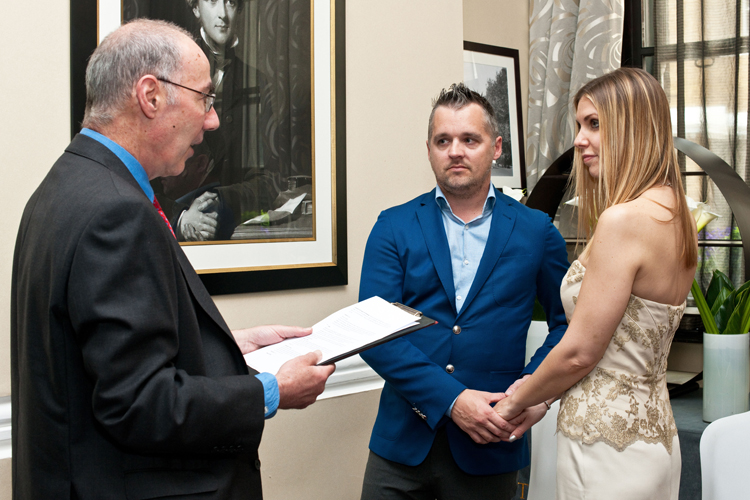I became a civil celebrant over 10 years ago, shortly after meeting my first celebrant. Until that day, I had no idea that such a thing even existed!
So it seems entirely reasonable to me that other people should have little or no idea what a civil celebrant does.
I’d therefore like to explain a few areas of my work and show how they may be of relevance to many people.
Humanist
I’m not a Humanist. Their remit is to lead a wholly secular service. I can do this too, of course, but, as an independent civil celebrant, I can also create and lead a part-religious, mixed-faith or even religious ceremony.
Location and Timing
If you’re not using a celebrant, currently you are limited as to where you hold your ceremony. The full religious one will take place in the church (or wherever); the Register Office one takes place, reasonably enough, at the Register Office (although, depending on certain stipulations being met, also in certain buildings, like some hotels).
In contrast, the celebrant is not restricted – they can hold ceremonies virtually anywhere – indoors, outdoors, in private gardens, up a mountain, in a luxury hotel, on the beach …
The services not led by a civil celebrant normally take place during the day on weekdays and Saturdays. Working evenings or Sundays, however, is quite standard for celebrants.
Ceremony Content
People often ask how much input is mine when it comes to putting together a service. It can vary from ceremony to ceremony (and usually does), but I expect to contribute upwards of 75%, once the client has had a preliminary chat with me.
That chat will give me an idea of the desired tone, of how much (or little) religion is wanted, who might like to participate actively, and which (if any) rituals to include.
My role is to use my experience to give ideas or advice and answer questions. I need to elicit exactly what the client actually wants, and enable them to achieve this.
The process is simple. After the (free) discovery call, once the client has booked with me, I normally email a draft service to them for their approval. They study it at their leisure and let me know what changes they want. Eventually, they will approve every word that I’ll be saying on their big day.
The celebrant-led ceremony is the only one that ensures the client gets a unique, personal ceremony that is perfect for them.
Hopefully, this will have clarified things a lot, but if you have further questions, please feel free to ask me!
photo: Victor Shack

